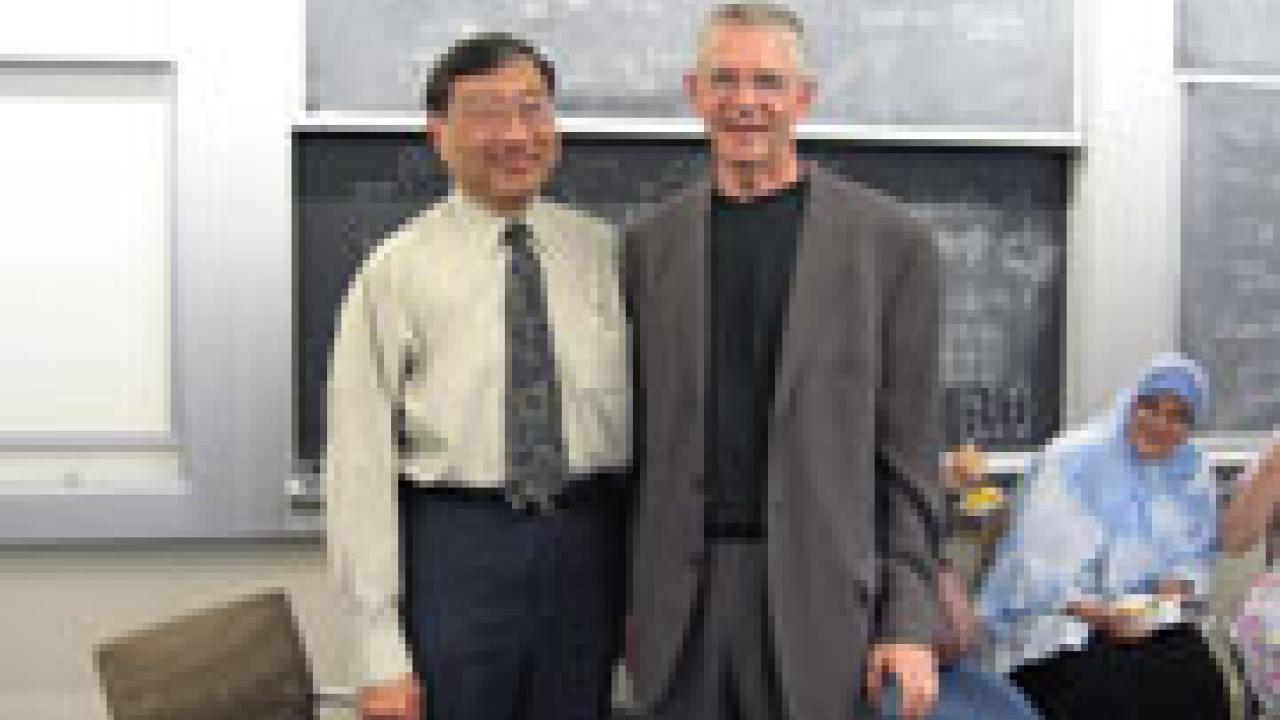Craig Tracy, distinguished professor of mathematics at UC Davis, has been elected to the American Academy of Arts and Sciences for his discovery of a set of statistical principles found in a wide range of problems, from card shuffling to the design of wireless antennae.
"I'm very honored," Tracy said of his election to the Academy, which was founded in 1780.
Tracy and Harold Widom of UC Santa Cruz were honored for their joint work on random matrix theory. The research began as an area of mathematical physics, but has turned out to have wide applications in math, physics and statistics, Tracy said.
"Professor Tracy's work in multivariate analysis in high dimensions is well known — a certain function even bears his name. So I am not surprised by his election to AAAS. But I am particularly elated by this honor of his, as his contributions to build up campus excellence go beyond mathematical research alone," said Winston Ko, dean of the Division of Mathematical and Physical Sciences, citing his service on Academic Senate committees.
Tracy and Widom's revolutionary work has changed the direction of their field, and has had a far-reaching impact on many different areas of mathematics, said Motohico Mulase, professor and chair of the Department of Mathematics at UC Davis. The Tracy-Widom law has become part of the common language of mathematicians, he said.
Indeed, the Tracy-Widom law was featured in a recent episode of a network TV show, CBS's Numb3rs, Mulase said.
A normal "bell curve" shows the distribution of random events that are independent of each other, such as a series of coin tosses. But in modern physics, events may be dependent on each other, so mathematicians need new tools to be able to understand them.
In the early 1990s, Tracy and Widom developed mathematical tools, now called the Tracy-Widom functions, for understanding these dependent distributions. Since then, they and other mathematicians and scientists have found that the same principles apply in a wide variety of natural and artificial situations, such as climate, card shuffling problems, statistical analysis of complex systems, and wireless communications.
"There is a confluence of ideas, and these turn out to be useful in all sorts of areas," Tracy said. "We were lucky enough to get into this."
In 2002, Tracy and Widom shared the $20,000 George Polya Prize from the Society for Industrial and Applied Mathematics for their work.
Tracy earned his bachelor's degree in physics from the University of Missouri, Columbia in 1967 and a doctorate in physics from the State University of New York, Stony Brook in 1973. He has been a professor of mathematics at UC Davis since 1984 and chaired the Department of Mathematics from 1994 to 1998.
Tracy is among an eclectic list of 175 Fellows and 20 Foreign Honorary members elected this year. Others include former Presidents George H.W. Bush and Clinton; U.S. Supreme Court Chief Justice John Roberts; Nobel Laureate Sir Paul Nurse; movie director Martin Scorsese; and conductor Michael Tilson Thomas.
The academy currently includes about 200 mathematicians among its members.
Media Resources
Andy Fell, Research news (emphasis: biological and physical sciences, and engineering), 530-752-4533, ahfell@ucdavis.edu
